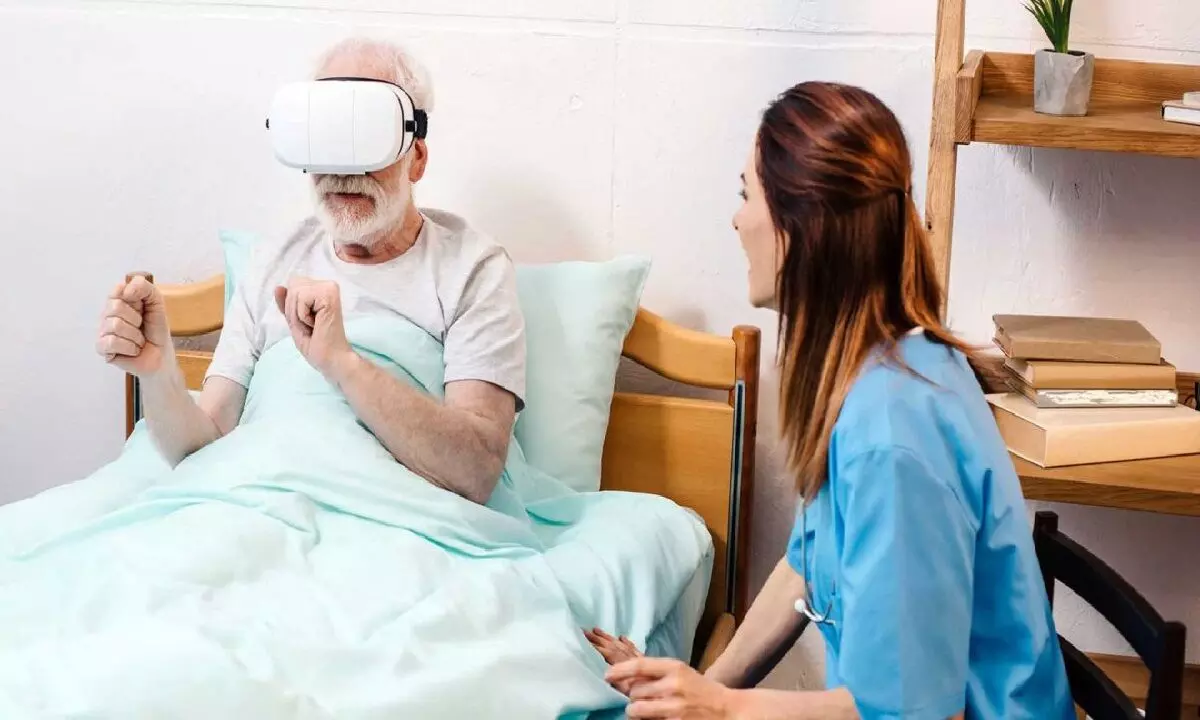AR walkthrough before surgery can minimise anxiety in patients
AR and VR have had increasing applications in medicine, including medical training, psychology, physical medicine, rehabilitation, and surgical specialties
image for illustrative purpose

New York: An augmented reality (AR) walkthrough before the surgery may be a useful tool for reducing pre-operative anxiety in patients, a new research has revealed.
Both AR and virtual reality (VR) have had increasing applications in medicine, including medical training, psychology, physical medicine, rehabilitation, and surgical specialties, such as neurosurgery and orthopedic surgery.
However, there is little data on AR’s effect on patients’ anxiety and experiences.
In a randomised clinical trial in the US that included 95 patients, patients who received the preoperative AR experienced a significant decrease in pre-operative anxiety score compared with the control group that received standard education materials.
There was no significant difference in anxiety levels after the operations, according to the study published in the journal JAMA Network Open.
The randomised clinical trial was approved by the institutional review board at the University of Miami and led by Michael G. Rizzo, corresponding author.
Participants were recruited from the University of Miami and included patients who were indicated to have an elective, outpatient orthopedic surgery.
The AR intervention visually walks patients through their trip to the operating room with narration from their surgeon while using an AR headset. AR experience takes approximately 3 minutes.
Anxiety experienced by patients before a surgical intervention is a well-documented phenomenon, occurring in up to 60-80 per cent of patients, and it can lead to alterations in cognitive and physiologic function.
While AR and VR have been used to improve patient education about the specifics of their procedure, to our knowledge, no studies have been performed that examine AR’s ability to affect patient anxiety and experience in the outpatient surgical setting.
“We hypothesise that by applying the AR to perioperative patient education and experience, we can decrease perioperative patient anxiety and improve patient experience and satisfaction,” the authors wrote.

